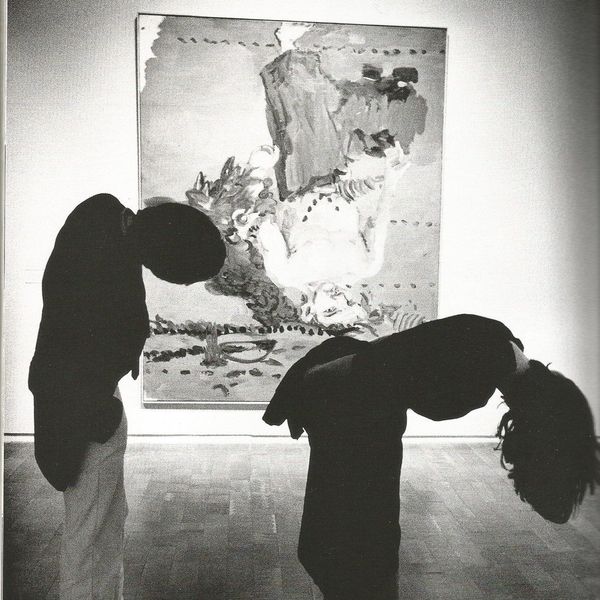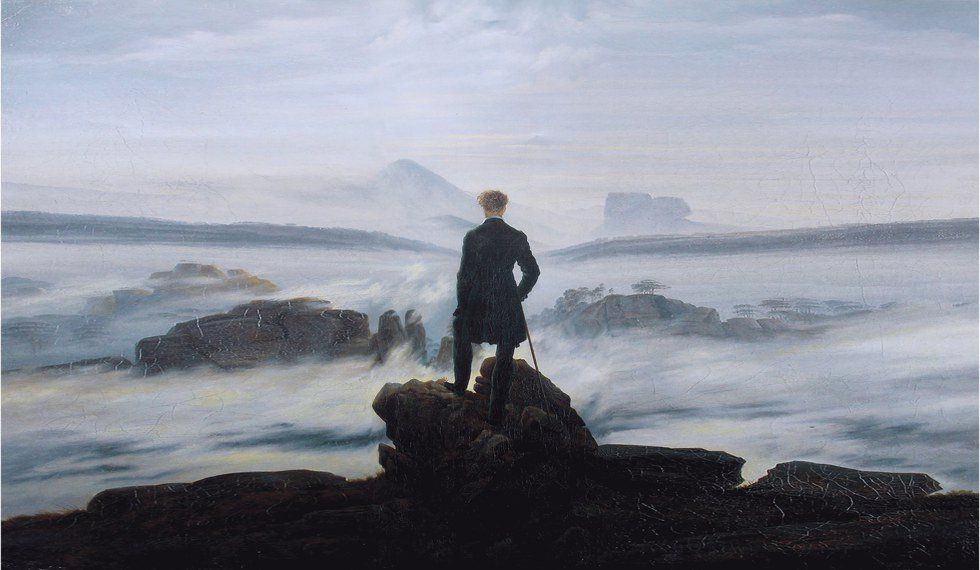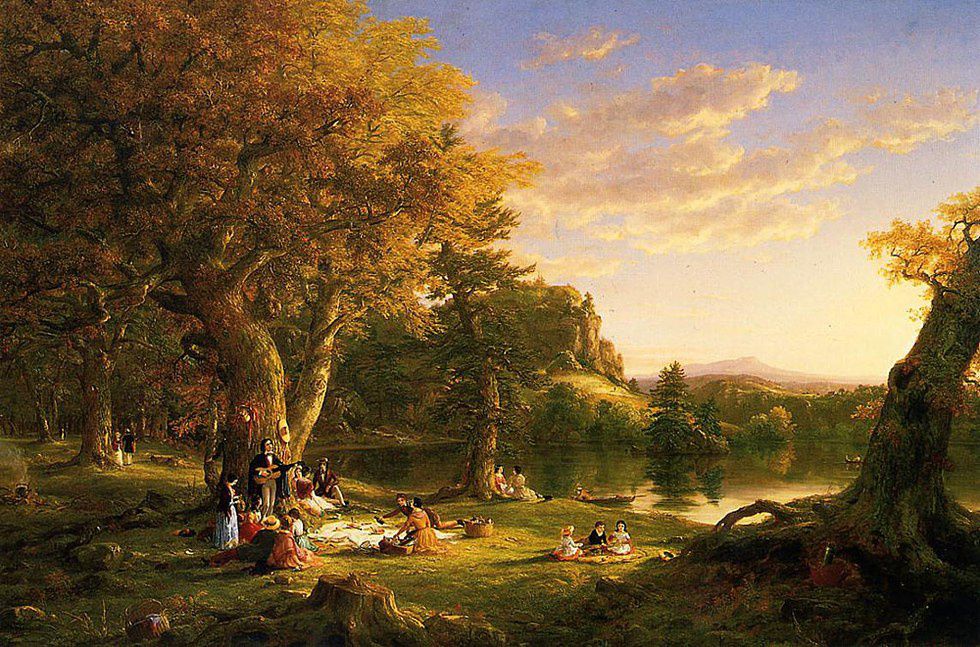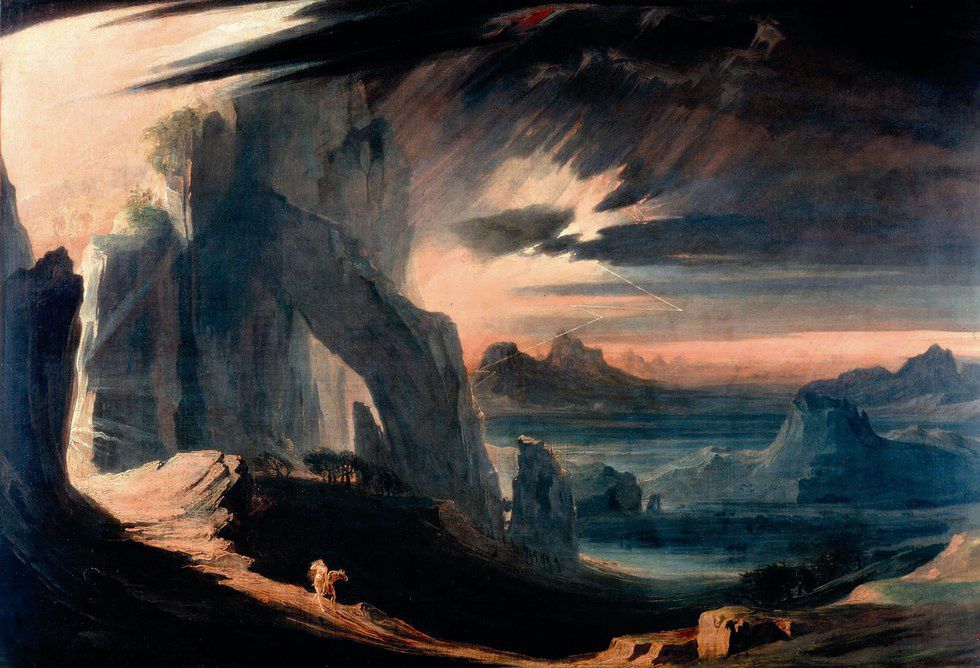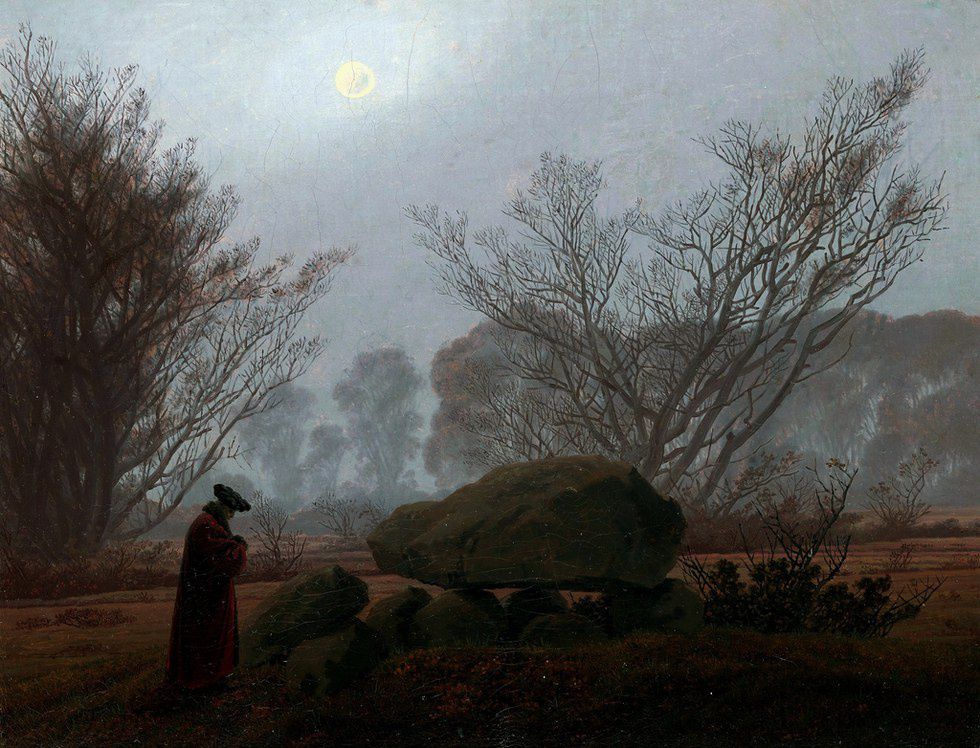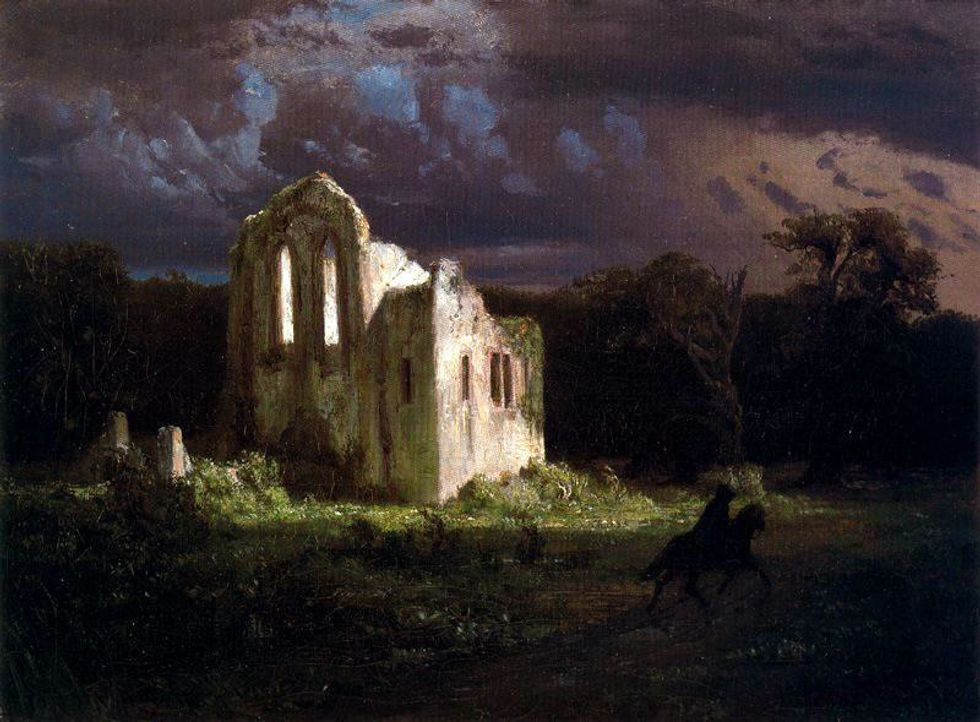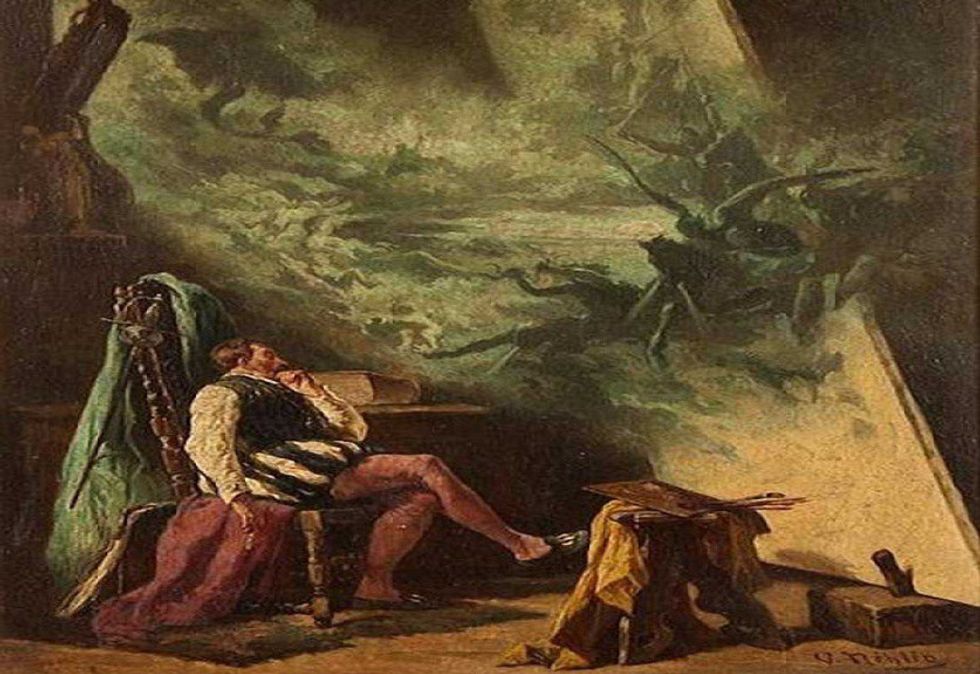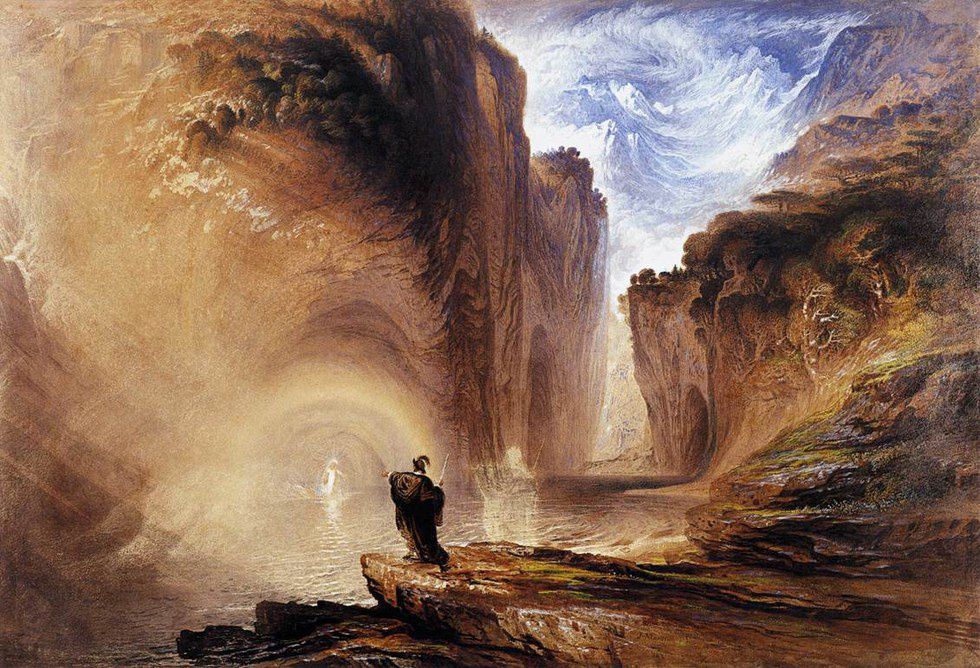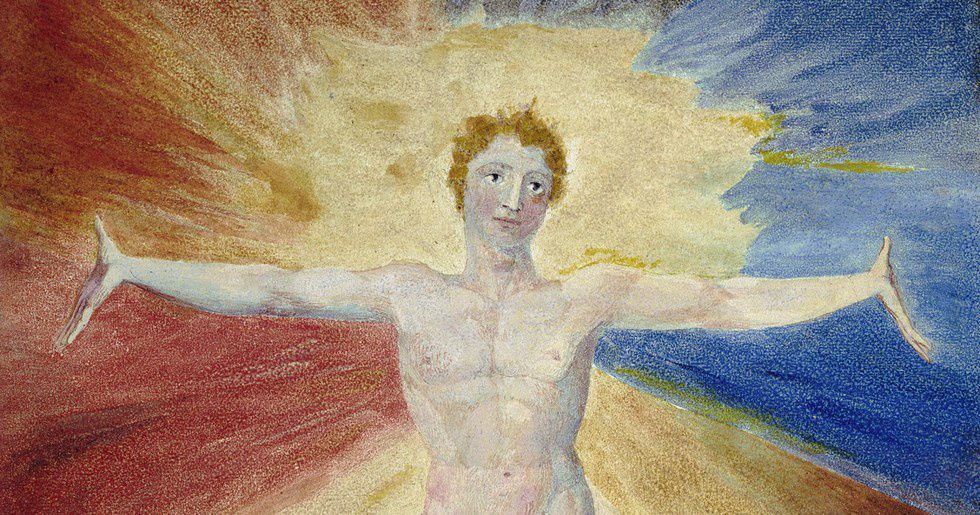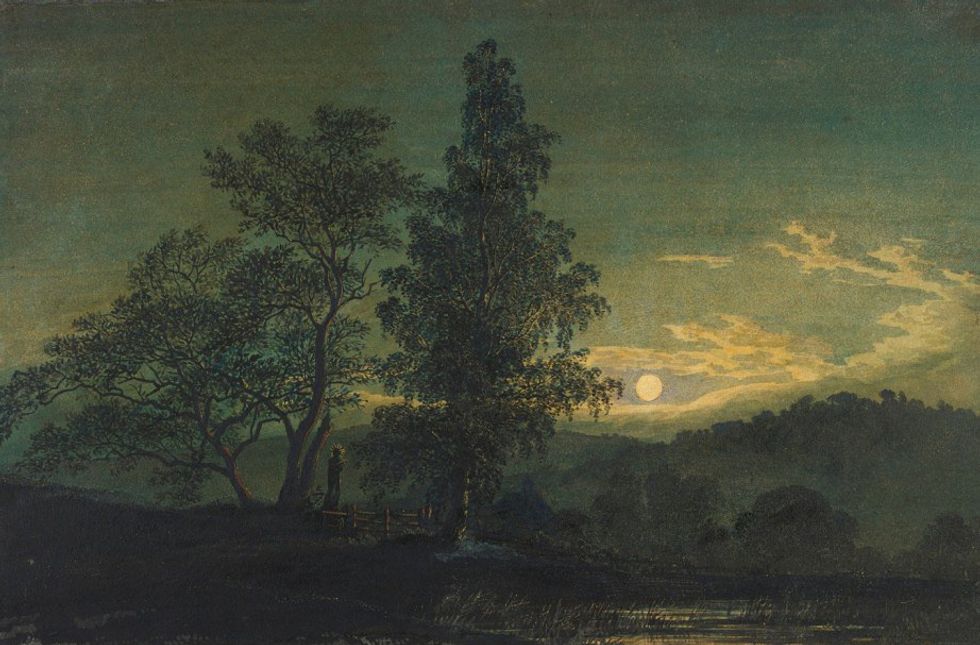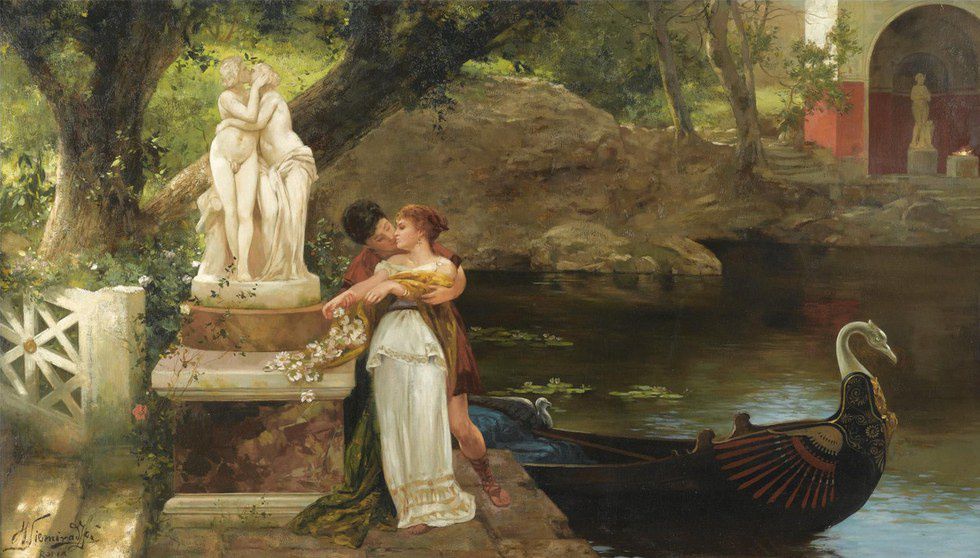In modern times, so often the word "romantic" carries the lovey-dovey connotations of things like candlelit dinners between lovers or rose petals spread out upon a bed with slow jazz music playing lightly in the background, but that's a cheap, almost silly far cry from the totality of what that term has always truly referred to.
In the realms of literature, art, and music, Romanticism is a genre of artistic and intellectual expression, most definitively embodied in the early 1800's by writers like William Wordsworth, Samuel Taylor Coleridge, John Keats, and Lord Byron, who, in almost direct opposition to the rising Industrial Revolution, emphasized in their writing a return to our true essence as spiritual beings, connected to nature and our own inner thoughts and feelings. Things like passion, introspection, intuition, individuality, awe, wonder, and mystery were of paramount importance to the Romantic writers, and they felt that the world desperately needed to get back in touch with these mindsets before they were swallowed whole by the overwhelming powers of business and industry. One can easily see how this idea is still relevant today, perhaps more so now than ever.
In a world that constantly tries to transform our souls into mere mechanical cogs in the wheel of technological industry, we could all use a reminder of the sacredness of life and what we truly are under all the machinery. Here are 9 key pillars of the "Romantic" mentality and how we can find them within ourselves to get more in touch with the true, magical essence of life.
1. Everything is Sacred
2. The Universe is Rich with Meaning
Coupled with the idea that "everything is sacred" is the Romantic idea that "everything is meaningful." In fact, it is meaningful BECAUSE it is sacred. Every single moment we experience is the universe's sacred way of communicating to us what we are meant to understand at that point. We are experiencing what we were meant to experience at the time we were meant to experience it. You were meant to be reading this article right now because you're at the point in your life where you were meant to receive its message. How do you know you were destined to experience it? Because here you are, experiencing it.
3. The Adoration of Nature
As you can imagine from understanding the previous two points, this elevates the status of nature to a grandly divine, worshipful plateau in the Romantic worldview, because nature is that sacred intelligence that binds all of existence together, brought our very souls and our planet into existence, and communicates to us in its every manifestation that we experience. Think of it like "The Force" in Star Wars lore. While in modern times, we often use phrases like "the Universe" or "God" to classify this all-encompassing intelligent power, particularly when we believe it directly interacted with our lives, the Romantic writers would often write "Nature" with a capital N to signify it in the same divine category. Each of these terms are entirely interchangeable depending on your preference, but what matters is acknowledging that a divine intelligence is at play in our lives and is embedded into the very fabric of our physical reality, to be found more intimately in the quieter places away from the noise of civilization, like the forest or the mountain or the river.
"One impulse from a vernal wood
May teach you more of man,
Of moral evil and of good,
Than all the sages can." - William Wordsworth
4. The Appreciation of the Mysterious
While Nature is given this almighty, divine status, it is also acknowledged as full of deep mystery that we were meant to immerse ourselves in to further understand the secrets of reality and ourselves. This concept is most commonly referred to in modern times by the phrase "God works in mysterious ways." The Romantics ask us to pause and be conscious of the mysterious reality we find ourselves embedded within, and its mysterious mode of operation in the unfolding of our lives, and humbly peer more deeply into its essence and see what we may find. The mysteries of life are where all the magic is found. A life more enamored by the mysterious is a life that never gets dull and never loses its awe, because the realm of the mysterious is a realm of wondrous exploration that never truly ends.
5. The Power of the Imagination
To the Romantic worldview, the power of the imagination was the highest capacity that a human being could reach. The imagination is what allows us to see beyond what merely is into what could be, and that creative power that we all possess was seen as indicative of the divinity that Nature endowed us with and proof of our special relationship with it. The imagination is the driving force behind all creation on Earth, artistic and otherwise, and the imagination is what allows us to understand perspectives beyond our own. Imagination gives us the ability to see how we can improve from our current conditions and this is what allows us to evolve, both in a psychological and biological sense. Albert Einstein was tapping into the Romantic mindset when he said "Imagination is more important than knowledge."
"My imagination is a monastery and I am its monk." - John Keats
6. The Transcendent Power of Art
If imagination is the highest capacity a human can reach, its focused, creative manifestation, art, is the highest aspiration a human can pursue. To the Romantics, art was the utmost calling of humanity, the most sacred thing we can participate in, the most transcendent power that we can harness. A human becomes something more than a human when he engages in the artistic mode and takes what exists only in the dark, ethereal recesses of the imagination and manifests it into physical reality for all to see and gather meaning from. Art is what shapes the world above all else and allows us to transcend our mundane, physical reality and connect with that which is beyond us.
"Art is the supreme task and the truly metaphysical activity in this life." - Friedrich Nietzsche
7. Passion and Emotion are Strengths, not Weaknesses
Passion and Emotion were foundational themes in the literature of Romantic writers, because they believed they were unrestricted glimpses into the truth of human nature and uncensored views into who we truly are as individuals. Our passion is the divine fire that fuels what matters most to us and propels us to pursue those things. Think of passion as your compass to your true destiny in life. Without passion, we are lifeless robots. Our emotions are what tell us the truth about who we are; what hurts us and what elates us, what worries us and what excites us, what angers us and what comforts us. Emotions communicate in a language that transcends words and have more intimate connection to our true essence than our own thoughts do. Emotions are what make us alive. Embrace your passions and emotions and never let this unfeeling world stifle such an important part of you.
8. Individuality and Introspection
Romanticism called for a turn within our own selves, so as to better understand our true nature and be more in-tune with our own souls. The better we could discover ourselves, the more fulfillment we could find and the better we could be a more unique embodiment in life and add special value to the world that no one else can add. We are at our most divine, transcendental form when we are being our true, unique selves and furthest away from what the world tries to shape us into. Romantics believed that we could most effectively get in touch with ourselves by, you guessed it, finding solitude in nature.
"...a mind forever voyaging through strange seas of thought, alone." - William Wordsworth
9. Love Can Rise Us Above All Things

And finally, an idea found within Romanticism that most closely resembles the modern understanding of the word "romantic." But rather than the materialistic, outward displays of sentimentality in our modern understanding, the emphasis within Romanticism was more towards the FEELING of love within and how it can transform us. The only thing sweeter for a Romantic than the intoxication of true love between two souls was feeling that same type of connection with Nature (of course). Love has that transcendent power that allows us to overcome any obstacle, any pain, any hardship, and reach the highest state of utmost bliss and fulfillment, and anything that pure and powerful deserves our serious pursuit and exaltation.
"There is a comfort in the strength of love; 'Twill make a thing endurable, which else would overset the brain, or break the heart." - William Wordsworth
The world would be much better off if we were more free and abundant with our love; with our significant others, our aspiring-significant others, our family, our friends, and most importantly, ourselves.
In what other ways do you think we could embrace and develop a more "Romantic" way of life?


